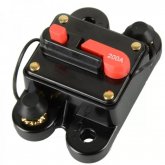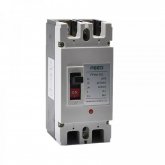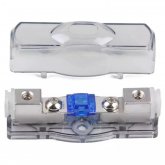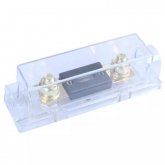In the Philippines, same like Thailand, hardware stores are closed like all non essential shops.
It will stay this way probably for atleast 4 to 6 weeks.
Your fastest option is Internet.
Not sure of Philihlphines have Lazada?
The video talks about 12v 400 watt system.
Now I read 2000 watt inverer...
I read about 48v...
That's NOT the video!!
Please describe what you are planning to do.
Is in on a ship, RV (trailer /camper car) or a home made of bricks (or sheets of metal, normal way of many houses in Isaan)
That's a starting point.
Next, what you are planning to do.
Laptop is easy, 400 watt inverter is good enough.
Cooking...
That's a whole different story!!
Yes, you need 2000w inverter.
Both do not require pure sine wave.
Led lights do not require.
Anything with electric motor does.
(Refrigerator, air conditioning, microwave, water pump)
Next step is batteries.
And determine how high voltage you want to have.
That is 12, 24, or 48 Volts.
Different voltages are possible but not recommended.
Once you decided, we can talk about solar and PWM or MPPT.
Most PWM stop at 24 Volt.
I haven't seen one on AliExpress or eBay for 48 Volt.
PWM are a lot cheaper than MPPT.
MPPT is little more efficient in converting the power from solar panels to your batteries.
Once you know your voltage...
How much power are you planning to use?
And only at sunlight?
Or also after?
The amount of power you are planning to use determine the size and number of solar panels.
If Philippines is like Thailand...
The ladies in the family are cooking always. Always something on the stove.
That can be charcoal (still used a lot) or gas. (We have inside and outside our home, both are used depending on smell

)
If you like this to be electricity stove...
You need a lot of panels!
If it's just when you run out of other ways, it's not that much.
Now we know the solar panels and the voltage...
I make suggestion based on regular laptop use, lights, no refrigerator or pump and water heater / rice cooker (600w)
One 300 w panel, one 12v 150Ah deep cycle lead acid battery, PWM 20A and 1000w modified sine wave Inverters.
All is low power, and the cheap breakers will be just fine.
If you are not on a budget.
You have enough money
Make it a 2000w pure sine wave Inverter.
Always good to have quality and able to use for pump or microwave.
Panels, more is better!
It is cheaper to have extra panel then to switch to MPPT.
Yes, MPPT is more efficient, extra panel will make the end result of the PWM better and cheaper

(And probably last longer)
Batteries..
Your stores are closed.
You can buy from China.
Not lead acid but Lifepo4.
They need additional electronic device, a BMS.
Nowadays buying from China the lifepo4 and BMS is cheaper then buying the deep cycle lead acid at your hard ware store.
Good news about lifepo4 is efficiency.
Lead acid is 70% effective.
If you want 100ah, you need to put in about 140ah on power.
In watts.. (for 12v)
If you want to use 1200 watts, you need to put in 1700 watts.
For Lifepo4 it's 95% and higher.
If you want to use 1200 Watts, you need to put in 1275 watts.
Basic parts break down.
What do you want to do
What is your environment
What is your budget
And do you have extension planning?
You want to add more panels, use more power?
Do you have power (grid - electricity cables from the power company) available, or you live off grid.
In the last situation, all power you can use is the power you create.
Do you have backup generator?
All questions needed before anyone can give you any real good advice matching your installation and your budget!!
If there is enough Money..
Yes, I agree buy the best quality.
For all the people who supply links...
What are the delivery cost and options for the Philippines???
Used Panels half price in the USA are a really bad investment to get in the Philippines.... Transport is crazy.
If you have a link of used panels in the Philippines.....
That's different

If budget is lower..
The 5 dollar breakers will work just fine for years without having any danger.
Yes, like most China crap, you need to match their rating.
Rating 100A is real life usage 50A.
They work fine for 12, 24, 48 and even 350v.
I use them for my solar panels to connect to the MPPT.
That is on 350v, 10A.
I use the 80A and it doesn't get hot, works just fine.
If there is a serious problem with the MPPT or the panels, the breaker will snap.
Also for maintenance, they are easy.
Better then any breakers are the good old fuses.
If you talk about safety...
That's the way to go.
View attachment 9954
View attachment 9955
Cheap and safe.
Just not that easy to turn off or back on again.
But..
Please, before anyone really can help you...
We need to have more information.
List is above.
Budget is important.
For the USA people...
That means shopping in China

Or eBay. (Often also China)
If the budget is limited, concession need to be made.
If you haven't used the cheap breakers...
Only know scary stories without proof...
Stop spooking.
I can tell you tons of scary stories with just about any component.
Include choking with 7 gauge wire

(That's a joke)
I use them, for many years now, without any issues.
As long as you use them wise, that is include the China margin (half the rating for actual rating) you are OK.
They do not like direct sunlight.
Thailand sunlight, really high UV.
After 3 months the colour change, after 6 the housing get cracks, after a year you can no longer use.
But...
That's for all the "good brand" AC breakers the same!!
They even go faster.
High UV, unless you live in an area that have it, is hard on any plastic, include PVC.
While in Netherlands the PVC rain pipe is still ok after 40 years, here the blue pipes, special for withstanding the high UV won't last 20 years.
I assume the Philippines is the same












